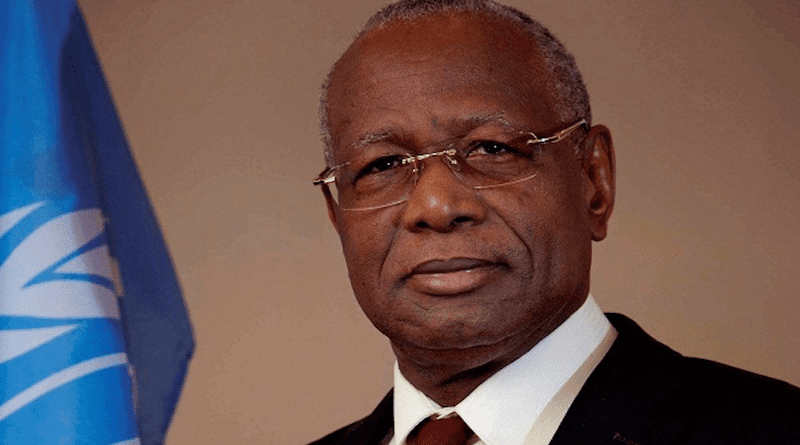Why Did UN Envoy Travel To Southern Libya? – OpEd
Abdoulaye Bathily, Special Representative of the Secretary-General for Libya and Head of the United Nations Support Mission in Libya, began an official visit to the countries of southern Libya to support stability and remove mercenaries and foreign fighters from Libya, including those from Sudan, Chad, and Niger, in pursuit of the mission.
During his meeting in Khartoum with the head of the Sudanese Sovereignty Council, Abdel Fattah Al-Burhan, Ali stressed the intensification of efforts to monitor and secure borders and to prevent the entry of terrorists, and he wants to unify the Libyan military and security institutions through the evacuation of foreign armed movements and foreign fighters.
Hence, we conclude that Bathily is trying to put pressure on the countries of southern Libya to control the borders, that he realizes that the Libyan crisis is a security crisis in the first place, and that he is trying to reach the elections that will not come until the security crisis that the country is suffering from is resolved. Abdoulaye Bathily’s intensive meetings in the countries of southern Libya aim to remove mercenaries from Libya. His efforts came in coordination with the United States, which began to put pressure on countries that have no interests in Libya and have mercenaries.
If the legislative bodies in Libya fail to reach an agreement on election laws in a timely manner, “we will consider the alternative procedure that we can take.” this is what America wants now: stability in the region. It will not accept any moves to obstruct the holding of elections. There are many attempts by him, such as announcing a new initiative to speed up the political process, which prompted the two legislative bodies, the House of Representatives, and the Supreme Council of State, to form a committee to look into election laws.
There are meetings with the 6+6 committee of the State Council. The committee is expected to complete its tasks before the end of May and hold the first meeting of the joint committee to prepare electoral laws.
Previously, an attempt to hold elections in December 2021 failed due to disagreements over election laws, including the eligibility of each of the main candidates. But the committee set up by the two legislative bodies must approve election laws in June in order to hold elections this year. They will be accountable to the Libyan people, the international community, and the regional leaders who support them in this process.
Many Libyans “expressed doubts about the ability of the House of Representatives and the High Council of State, and many Libyans also doubted the possibility of holding elections in a country where most of its territory is controlled by armed factions that may support or oppose the candidature of certain people, even if the political bodies were able to agree on election laws.” But Abdoulaye Bathilyis trying to have “free and fair elections” in light of the current division of the security services.
A state of anticipation prevails as the High Council of State calls on all members of the committee to meet in the capital, Tripoli, this week, in the framework of seeking to complete the presidential and legislative elections in accordance with the thirteenth constitutional amendment before the end of this year.
The head of the government appointed by Parliament, Fathi Bashagha, confirmed his intention to call on all Libyan parties to a conciliatory speech and to put aside differences at this sensitive stage. Libya has suffered for a long time due to wars, conflicts, divisions, and the existence of two governments in the East and the West. Fathi Bashagha’s concern reflects the return of the American role in the Libyan file. It is expected that Abdul Hamid al-Dbeibeh will respond to Bashagha’s invitation given the changing circumstances. Also, Dbeibeh is forced to conform to international conditions and desires.
Bashagha stressed the continuation of the election effort and the need for the House of Representatives and the Supreme Council of the State to complete the procedures entrusted to them, and the UN envoy to Libya, Bathily, confirmed that the Tripoli meeting was an important confidence-building process for the security and military leaders.
The UN mission considered that the Tripoli meeting aimed to follow up on the commitment expressed by the participants during a similar meeting in Tunis, regarding working together to create conditions conducive to holding elections.
France also affirmed its support for the efforts of the UN envoy, Abdoulaye Bathily , as well as the “5 + 5” joint military committee aimed at unifying the military establishment and securing elections.
We find that Abdoulaye Bathily learned from the previous mistakes made by the UN mission and focused this time on achieving security consensus among the security institutions in the country. The recent American moves towards the Libyan file strongly indicate the desire of the United States and the Western community to prepare the country for a procedure election and reach a state of stability.

